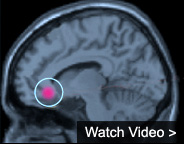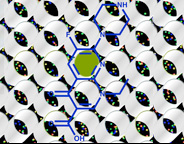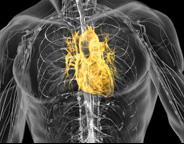 |
 |
|||
| July 31, 2008 | ||||
 |
Deep Brain Stimulation Shows Promise for Difficult-to-Treat Depression A recent study shows that deep brain stimulation using high-frequency electrical stimulation is effective as a treatment for patients with depression who have not responded to other therapies. A new study will refine the technique and also tackle biopolar II depression. Click on the image to view the story of one patient. Read more . . . |
|||
 |
Antibiotics Can Improve Gene-Silencing Tool RNA interference (RNAi), which is a way to turn off one gene at a time, grew out of discoveries that earned the 2006 Nobel Prize. Now, Emory researchers have found that a class of antibiotics can make RNAi more effective in the laboratory and reduce side effects. They hope RNAi will one day be useful in treating a variety of human diseases. Read more. . . |
|||
 |
Seeing Smarter: Better Diagnosis With New Imaging Tools An abundance of new imaging techniques gives doctors more and better choices for looking inside the body without cutting it open. Understanding these complex new tools and using them effectively is requiring new expertise and collaboration from across the health sciences center. Read more . . |
|||
 |
No Matter What Language You Speak, Diabetes is a Global Problem One of the world's foremost experts on diabetes epidemiology and a "global citizen," K.M. Venkat Narayan is leading a new Global Diabetes Research Center in India. The results will benefit citizens in many countries including the United States, where Narayan estimates lifetime risk for diabetes as one in three. Read more . . . |
|||
 |
Unraveling the Mysteries of PTSD Most people who experience a traumatic event find a way to cope, but a small proportion cannot put traumatic events behind them. Emory research shows that virtual reality therapy combined with drug therapy may help these victims of post traumatic stress disorder (PTSD) extinguish their fear. Read more . . . |
|||
 |
 |
|||